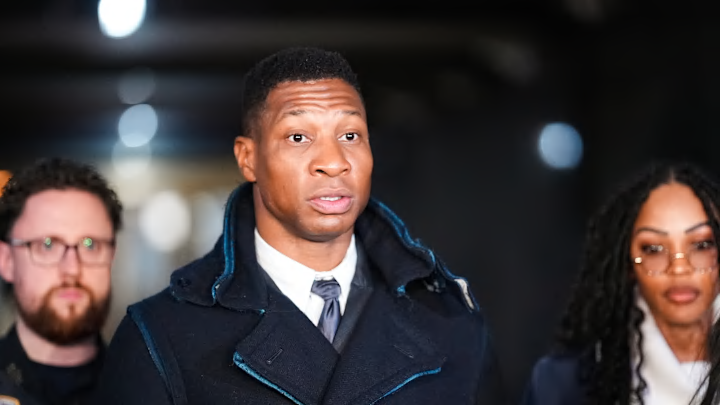In a shocking turn of events, actor Jonathan Majors, known for his roles in Marvel's cinematic universe, has been convicted of assaulting his former girlfriend, Grace Jabbari. The verdict, delivered by a Manhattan jury, has not only tarnished Majors' once-burgeoning Hollywood career but has also led to his swift removal from all upcoming projects with Marvel Studios and Disney.
The Trial and Verdict:
Majors, 34, was found guilty of one misdemeanor assault charge and one harassment violation stemming from a March confrontation with Jabbari. The incident involved allegations of Majors assaulting Jabbari in a car, leaving her in "excruciating" pain. Despite being acquitted of some charges, the verdict prompted immediate action from Marvel and Disney, who dropped him from the highly anticipated "Avengers: The Kang Dynasty" and other upcoming projects.
Career Implications:
Before his arrest, Majors was on the path to becoming a central figure in the Marvel Cinematic Universe, playing the antagonist role of Kang. With appearances in "Ant-Man and the Wasp: Quantumania" and "Loki," he was set to star in major productions. However, his conviction has abruptly halted this trajectory, marking a significant setback for the actor.
Personal and Legal Ramifications:
Majors' sentencing is scheduled for February 6, and he faces the possibility of up to a year in jail for the assault conviction. While Majors' lawyer expressed faith in the legal process, the Manhattan District Attorney, Alvin Bragg, emphasized the trial's revelation of a "cycle of psychological and emotional abuse."
Details of the Confrontation:
The dispute between Majors and Jabbari began in the backseat of a chauffeured car, spiraling into a public confrontation in the streets of Manhattan. Jabbari accused Majors of physical assault, including hitting her in the head and causing a fractured finger. Majors' defense portrayed Jabbari as the aggressor, claiming she sought to destroy his career.
Trial Revelations:
During the trial, text messages were presented, showing Majors discouraging Jabbari from seeking medical treatment for a head injury. Prosecutors argued these messages illustrated a pattern of coercion and control. Additionally, audio recordings featured Majors questioning Jabbari's ability to meet high standards set by notable figures, further portraying a troubled relationship.
Conclusion:
Jonathan Majors' fall from grace in Hollywood serves as a stark reminder of the complexities surrounding personal conduct and its impact on a public career. The trial not only revealed disturbing details about the actor's relationship but also highlighted the pervasive issue of domestic violence. As the industry reevaluates its stance on such matters, the conviction of a rising star like Majors underscores the importance of accountability and justice in the pursuit of a safer and more equitable entertainment industry.
